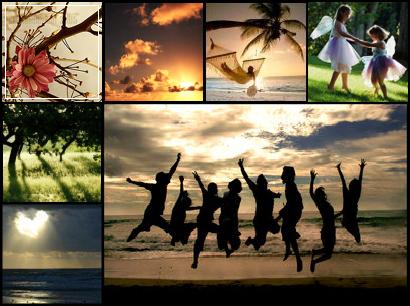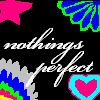
A definition of prejudice
Prejudice can be defined as irrational preconceptions about people, places or things. Prejudices are formed without knowledge, but have a powerful influence upon our decisions and judgment. Discrimination occurs when we allow ourselves - consciously or subconsciously - to be influenced by prejudice.
Prejudice is part of human nature. Whether we care to admit it we all have prejudices of one form or another. These may arise from preconditioning by family, eg being told not to trust/associate with people of XXXX race / nationality / religion... Or simply from irrational fears, eg as felt on seeing someone with a dark skin for the first time.
These days in many "developed" countries it is illegal to discriminate on the grounds of race, gender etc. However, it is (thankfully) impossible to legislate on the contents on individuals' minds.
Origins of Prejudice
Much of what we do as humans is controlled by hidden, subconscious drives. This is largely good because it wouldn't be much fun having to remember to breathe. But in the case of prejudice we may limit our life experience, and thus achievements, through pure irrationality.
Take for instance the case of my mother who refuses to eat Asian food because it would make her ill. How can she know, because she's never tried it? If she tried it and it did make her ill (pretty unlikely as billions eat Asian food every day with no ill effect) she would know to avoid it in future. But what if she tried it and actually liked it? She could then enjoy it many times over.
Again I refer to my mother whose family home was bombed and destroyed in World War II by the Germans with the loss of her grandfather and brother. She has suffered ever since from the incident. Is she justified in feeling prejudice, even hatred, against all Germans? Surely an impossible question to answer. She is certainly justified in "hating" the German administration that fought WWII, and maybe against the actual pilot that caused her so much misery, even though he was probably "only acting on orders"!
But to feel badly towards a German born after the cessation of hostilities? That is irrational, though perhaps understandable and forgivable.
Of course it is nonsense to say we cannot/should not hold opinions. Opinion is an essential part of what we are. But we should try as far as possible to ensure our opinions are based upon valid reasons, whether objective or intuitive.
Of course we form likes and dislikes. Of food, of music, of customs and cultures, of people... As far as possible we should form these on the basis of experience. Sometimes they will be formed on the basis of pure intuition - and intuition is a valuable ally that should not be ignored. But where our feelings are negative we should still try to refrain from absolute judgment - such and such is wrong, bad, evil etc. Few things are so black and white. It is better instead to simply take the stance that the things we dislike are just not our bag. This of course leaves the way open for a possible future change of heart.
So, prejudice per se is destructive. Not only because it harms those we discriminate against, but also because it harms ourselves. If we're hiring for a job but we're misogynistic we're denying females an opportunity they may deserve. But we're also doing ourselves and our business a disservice by hiring an inferior person. Ultimately prejudice blinds us to much of the infinite opportunity of the universe.
Coping with Prejudice
The key to coping with prejudice is recognition. Firstly to recognize when we're being subject to prejudice. To have a little alarm bell ring in our head that says, "that's irrational". And secondly to recognize that it's inbuilt, and as such we're never going to be completely rid of it.
In seeking to minimize our prejudices we must also be careful not to eliminate the voice of intuition. For this is also an "irrational" influence, but one which often carries great truth. The difference is that prejudices are always there, always saying the same thing. Intuition, or the "hunch", operates once in a while and can be completely counter to one's intuitive feelings.
If you are the victim of prejudice
Don't feel bad, probably most - if not everyone - will at some time be unfairly discriminated against. The thing to do is retain your dignity and self-esteem. Remember what has happened is not rational and is absolutely no reflection upon yourself and your rights to exist and your value in doing so.
In most cases the best thing to do is simply walk away and move on. There is often no point expending energy banging your head against a brick wall that it's easier to just walk around. Prove the other to be in error by proving your worth regardless.
But there are instances when it IS worth taking a stance on principle. Be guided by you intuition and if/when such a situation arises be prepared to fight as long and hard as it takes for reason to prevail.
© new-age-spirituality.com 2007
note:
Prejudice is defined as ‘thinking badly of others without sufficient reason’ So prejudice is seen as a way of thinking about others groups of people.
Racism is defined by the formula ‘prejudice + power = racism’.
Sometimes, our racial prejudices are made acceptable and supported by key institutions in our society.
Racism is when racial prejudice get turned into action of some sort, and that action harms the weaker group.
So racism is seen as a way of acting towards other groups of people.




 Both the head and the heart have their place in decision making. When both are in accord the choice is easy. But what happens when the head says one thing and the heart says another? In such cases it's almost always best to follow the heart - unless the head's verdict is very very clear, and the heart somewhat less so.
Both the head and the heart have their place in decision making. When both are in accord the choice is easy. But what happens when the head says one thing and the heart says another? In such cases it's almost always best to follow the heart - unless the head's verdict is very very clear, and the heart somewhat less so. We are born imperfect,
We are born imperfect,  Centuries ago, a new breed of person called the "scientist" began feeling very excited and optimistic about using "Reason" to lead humanity to a new state of freedom, happiness, progress, wisdom, harmony, etc etc etc. Science has been raging, full-steam ahead, ever since. So, how has it turned out, so far?
Centuries ago, a new breed of person called the "scientist" began feeling very excited and optimistic about using "Reason" to lead humanity to a new state of freedom, happiness, progress, wisdom, harmony, etc etc etc. Science has been raging, full-steam ahead, ever since. So, how has it turned out, so far?



